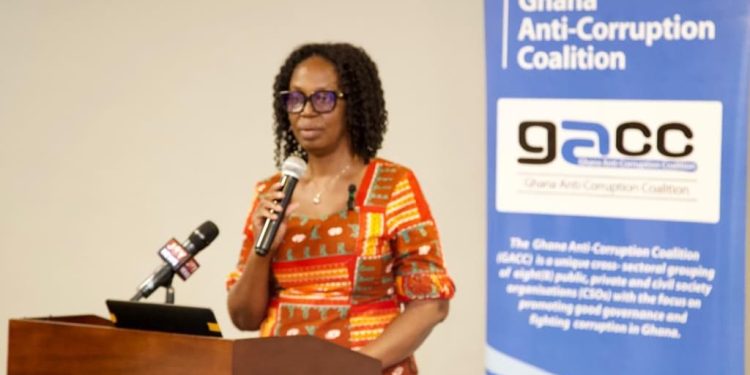Ghana Anti-Corruption Coalition, Ghana Audit Service Train Journalists on Auditor-General’s 2024 Report
The Ghana Anti-Corruption Coalition (GACC), in collaboration with the Ghana Audit Service, undertook a two-day training programme to deepen media understanding of the 2024 Auditor General’s Report, with the aim of strengthening investigative reporting on public financial management.
Funded by the Hewlett Foundation, the workshop forms part of GACC’s “Building Evidence for Increased Accountability in Ghana through a Multistakeholder Accountability Initiative” project, which seeks to improve governance outcomes through informed and evidence-based journalism.
Opening the session, GACC Executive Secretary Beauty Emefa Narteh urged participants to move beyond headline-driven coverage.
“It’s time for media personnel to move beyond sensationalism. We must delve into the key components of the Auditor General’s report, addressing issues that impact our nation’s governance, including the conduct of public office holders,” she said.
The first day of the workshop focused on demystifying the Auditor General’s Report. Participants engaged in sessions designed to deepen their comprehension of the report’s findings and recommendations, crucial for fostering transparency and accountability in government financial practices.
The overarching goal aligns with GACC’s project, which emphasizes the importance of informed reporting.
Frederick Lokko, Right to Information Officer at the Audit Service, was one of the key resource persons. He elaborated on the role of the Ghana Audit Service, as mandated by the Constitution, emphasizing that their primary responsibility is to report financial irregularities, not to declare losses or unretrievable funds.
“Understanding the nuances of these reports is vital for journalists,” Mr Lokko stated, urging attendees to meticulously study the Auditor General’s findings and to follow up on the implementation of its recommendations.
Patrick Neequaye, Assistant Auditor General, also contributed significantly to the discussions. He provided insights into the technical aspects of the reports published following parliamentary approval.
He clarified that while cash irregularities might suggest financial mismanagement, they do not necessarily indicate that money has been lost.
“These findings highlight the challenges we face in dealing with state agencies and corporations,” Neequaye explained, reinforcing the need for accurate interpretation of the report’s content.
Throughout the day, participants engaged in discussions that highlighted the importance of comprehensive reporting. They learned to identify key areas within the Auditor General’s Report that warrant further investigation.
The workshop encouraged journalists to utilize the knowledge gained as a springboard for deeper probing into public financial management issues.
As the first day of the workshop concluded, there was a palpable sense of enthusiasm among participants. The insights shared by experts like Mr Lokko and Mr Neequaye not only equipped journalists with the necessary skills but also instilled a renewed sense of responsibility towards their role in promoting accountability in governance.
The GACC and the Ghana Audit Service’s commitment to enhancing media literacy in financial reporting is a crucial step toward ensuring that the Auditor General’s findings lead to meaningful action and reform.







